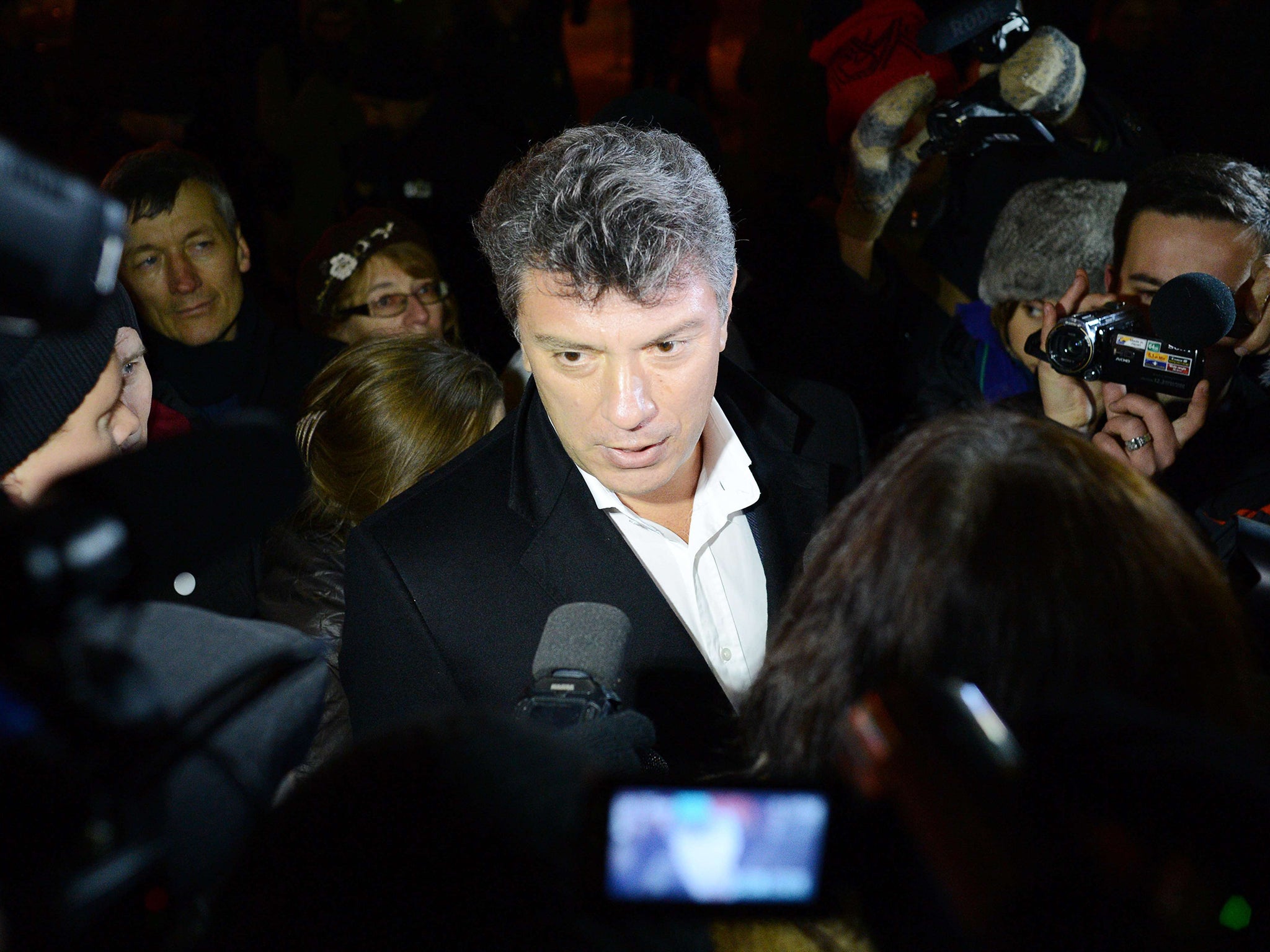Boris Nemtsov: Russian opposition leader murdered two days before a planned rally against involvement in Ukraine
Sir Tony Benton, former British Ambassador to Russia: 'He was one of the best: charismatic, enthusiastic, determined to make Russia a better place, and, finally, brave'

Boris Nemtsov was one of the leading lights of the opposition movement in Russia. A popular and charismatic moderniser, he had campaigned against the duumvirate of President Vladimir Putin and his Prime Minister, Dmitry Medvedev, advocating open, accountable democracy and free-market economic reforms.
Nemtsov was born in Sochi in 1959 and grew up in Gorky (now Nizhny Novgorod). He read physics at Gorky State University, graduating with first class honours. He became involved in politics by chance, having worked at the Radiophysical Research Institute. In 1988, two years after the Chernobyl disaster, his mother was leading protests against a proposed nuclear power station in their town. Nemtsov became involved in the successful campaign. He ran for the Soviet Congress of People’s Deputies the following year as an advocate of economic reforms but was unsuccessful in gaining a seat.
Yeltsin announced a cabinet reshuffle in March 1997 that purged many of the old guard, making Nemtsov his first deputy prime minister and bringing in a new finance minister. “Two young men – you and Anatoly Chubais – create a fresh young team in the government, from scratch,” Yeltsin said, noting of Nemtsov that “You are not from Moscow, not from a soiled pack of cards”. Nemtsov said that “dramatic changes are needed”, speaking of the improvements to the country’s political and economic situation he envisaged.
In 1999 he was one of the founders of the Union of Right Forces, created through the merger of two smaller modernising parties. Standing on a platform of reform and making extensive use of television and the internet, the new party presented itself as a youthful alternative. It garnered 8.6 per cent of the vote, winning 32 seats in the Duma (lower house).
When Putin was elected president the following year, Nemtsov found himself in an awkward position. Although strongly opposed to Putin’s anti-democratic measures, he was obliged to work with his URF colleague Chubais, who took a more deferential approach to the country’s new leader. Nemtsov led the URF from 2000-03, when it failed to win any seats in parliamentary elections.
Nemtsov then sought a break to “forget about politics, and simply earn money,” as he said, joining Neftyanoy Bank as a director and becoming chairman of Neftyanoy Concern, its parent company. This brief excursion into high finance was brought to an abrupt end after a year, following allegations of fraud at the bank. Nemtsov suggested that it was not his improbity but rather his vocal support for the former Prime Minister Mikhail Kasyanov, who had planned to stand for President in 2008, that had brought about the investigation.
In December 2008 Nemtsov and other opposition politicians founded Solidarnost (Solidarity), named after the Polish Solidarnosc group of the 1980s. Seeking a democratic alternative to the “tandemocracy” of Putin and Medvedev, the collective included the retired chess grandmaster Garry Kasparov. Solidarnost set itself head-to-head with Putin by opposing, unsuccessfully, his proposal to extend the presidential term from four to six years.
Nemtsov had been arrested in November 2007 and December 2010 for “unauthorised” protests against Putin. He was jailed for two weeks in 2011, at which time Amnesty International described him as a prisoner of conscience. Despite world condemnation he was again arrested during protests in Moscow in December of that year. Deputy of the Yaroslavl region Duma since 2013, he had been outspoken in his opposition to Russia’s annexation of Crimea and intervention in Ukraine. “I’m afraid Putin will kill me,” he said. “I believe that he was the one who unleashed the war in the Ukraine. I couldn’t dislike him more.”
He had continued to promote an anti-war demonstration which was scheduled for yesterday. In a last message posted on social media he said, “If you support stopping Russia’s war with Ukraine, if you support stopping Putin’s aggression, come to the Spring March in Maryino on 1 March”. He was shot four times in the back as he was crossing Bolshoy Moskvoretsky Bridge in Moscow, and died there. The march became a memorial rally.
Sir Tony Benton, former British Ambassador to Russia, told The Independent, “I saw a lot of Boris over the years, and worked closely with him in the early days of reform. He was one of the best: charismatic, enthusiastic, determined to make Russia a better place, and, finally, brave. He had an optimistic zest for life which carried both him and those around him through some very dark moments. His death reminds us of the dangers of opposition politics in today’s Russia. I, and all those who want to see a more liberal, democratic Russia, have lost both an inspiration and a friend.”
Boris Efimovich Nemtsov, scientist and politician: born Sochi 9 October 1959; married Raisa Akhmetovna (four children); died Moscow 27 February 2015.
Subscribe to Independent Premium to bookmark this article
Want to bookmark your favourite articles and stories to read or reference later? Start your Independent Premium subscription today.

Join our commenting forum
Join thought-provoking conversations, follow other Independent readers and see their replies